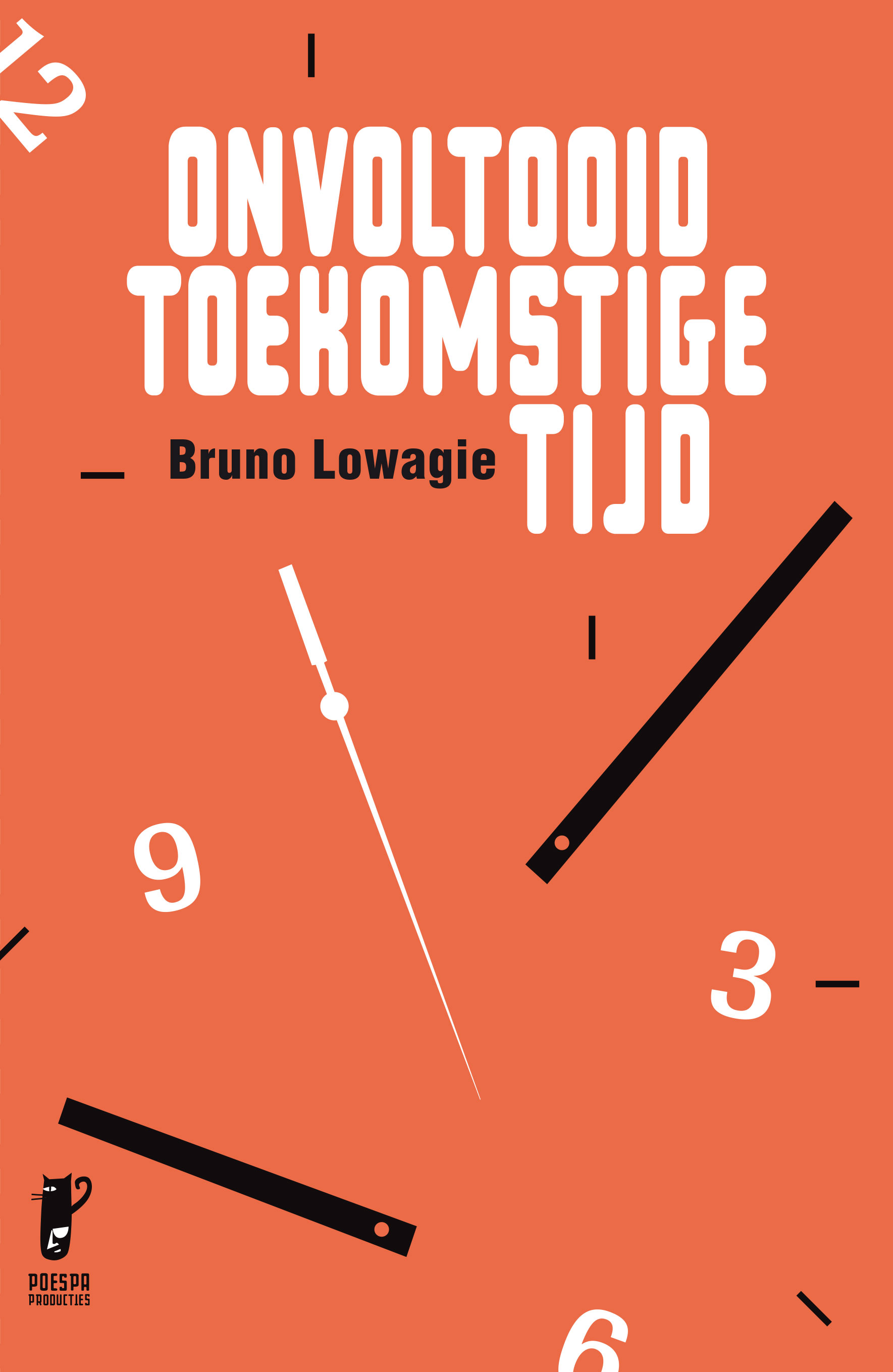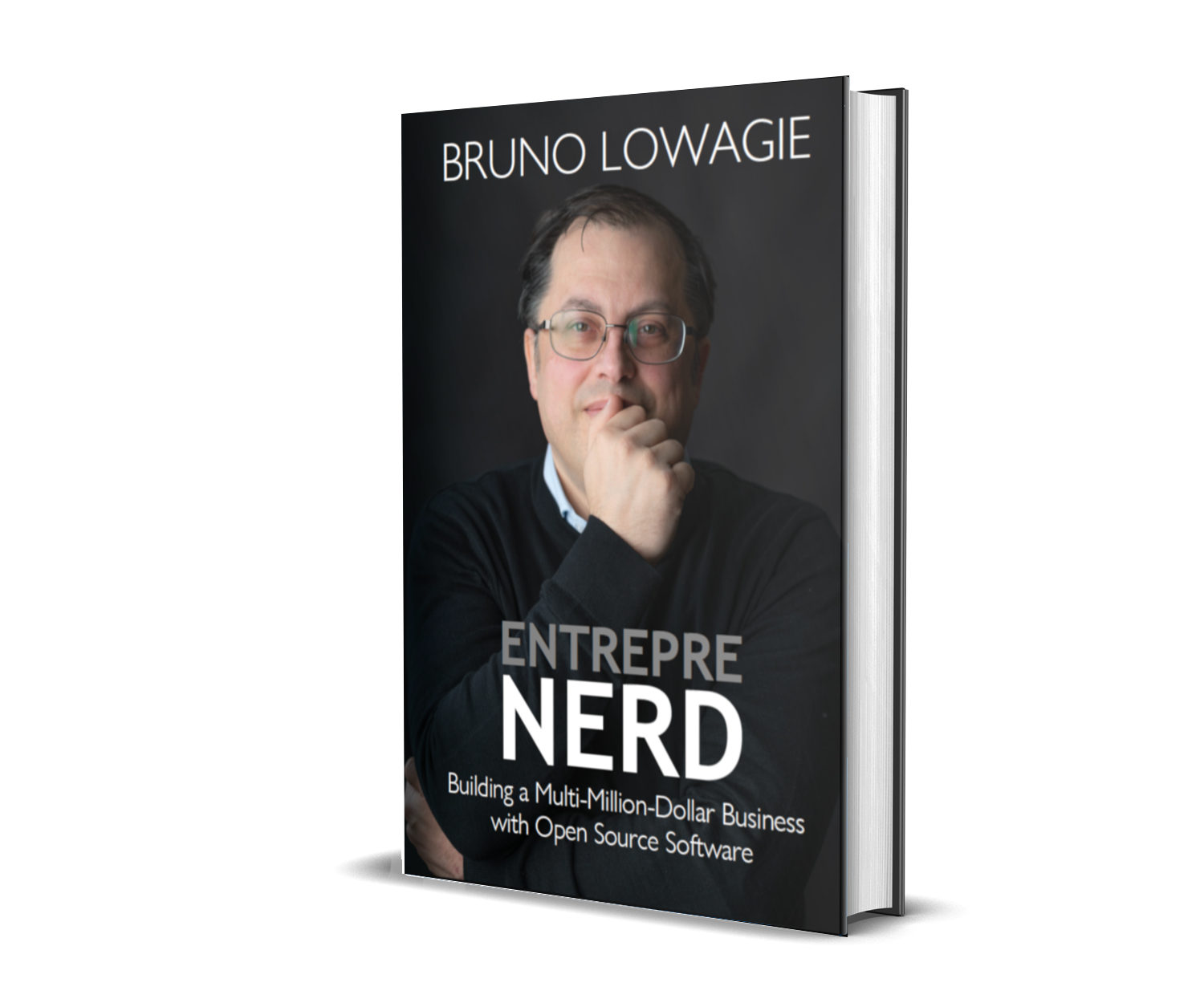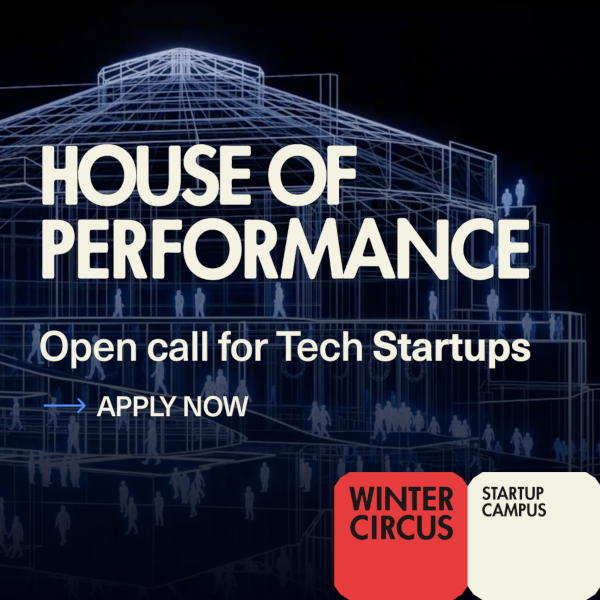2020-09-18
Would you read this book?
I've just finished writing a raw draft of a book with the working title "The Accidental Entrepreneur". I'm now writing a book proposal that will be sent to different publishers of business books in the course of next week. You can find a short intro and the full table of contents below.
With this blog post, I want to do perform a small marketing survey. I'd like you to answer the following questions on LinkedIn:
- Would you read this book?
- Does the content of this book remind you of any other book you've read?
- Which publisher(s) do you think I should contact?
Feel free to share this post on social media. It would even be better if you could introduce me to a publisher.
The Accidental Entrepreneur
Founders of tech startups don't read business books. I can tell because I help startups by making them "investor-ready" and I notice that technical founders know all there is to know about writing code, the Cloud, and apps. Unfortunately, they often have no clue what the due diligence process is about; they don't know the difference between a call option and a put option; and they can't justify why their company is worth millions of dollars.
Truth to be told, I didn't know any of those things either when I wrote the first lines of code that would result in iText, a free and open source PDF library. I would have called you crazy if you told me that this hobby project would eventually make me a multimillionaire. "Steve Jobs, A Biography" was one of the few business books I read, and although I liked the book, "being like Steve Jobs" was neither realistic nor desirable.
In "The Accidental Entrepreneur", I take the reader with me on my personal journey. I share the ups and downs of being a developer forced into business to save his free and open source project. Along the way, we learn what being an entrepreneur is about. After reading this book, you'll also know the vocabulary you'll need when looking for an investor. Whatever I did, you can do too.
Table of Contents
Introduction
I inform the reader which audience I had in mind while writing the different parts of the book. I explain that this book isn’t a scientific work, but a testimonial about how I created a product, founded a company, and grew the business towards an exit.
- About the book
- About part I: Failing Forward
- About part II: Building Free and Open Source Software
- About part III: From Startup to Exit
- Disclaimer
- Acknowledgments
PART I: Failing Forward
This part spans the time between my birth in 1970 and the first version of iText, released in the year 2000.
Chapter 1: High School
[2600 words] I get my first computer at the age of twelve. As a teenager in the eighties, I write my own games. I also create a database system that leads to a first, extremely small business. That’s also my first failure.
- Brief History of my Hometown
- My First Computer: the TI-99/4A
- My Second Computer: the TRS-80 Model 4P
- Writing Computer Games
- Writing Business Applications
- My First Business
Chapter 2: College
[3200 words] I meet the girl that will become my wife and business partner. I’m not a good student, but eventually, I obtain a master’s degree in civil engineering.
- Admission Test
- Going to the Movies
- Forbidden Couple
- Failing my Third Year
- Rediscovery of a Hobby
- Three or Ten Months Off?
- Master Thesis
- Postponed Graduation
Chapter 3: Internship
[2400 words] I don’t succeed in finding a job. I end up doing an unpaid internship instead. During that internship, I learn about a new programming language, Java, and I explore the internet for the first time.
- Jack of All Trades, Master of None
- Self-Study and Further Education
- “Only losers don’t find a job”
- Geographic Information Systems
- Double Admission Test
- From Trainee to Trainer
- Leading the CyberCity Project
- My First Contract with TRASYS
Chapter 4: Early Career
[3400 words] I change jobs three times in two years’ time. In-between, I start many projects; all of them fail, just like the business I started as a teenager.
- Working for TRASYS (part 1)
- Failure #2: The Belgium Applet
- Working for The Reference
- Working for TRASYS (part 2)
- Failure #3: Perl Server Pages
- Working for Ghent University
- Failure #4: cat@loogje.com
- Finding my Purpose
Chapter 5: My First PDF Library
[2200 words] This chapter starts with the history of PDF and a promise I make to my employer: I’ll add PDF functionality to a web application. When I discover that there isn’t any tool that meets my employer’s needs, I decide to write a PDF library myself.
- The Camelot Paper
- Adobe Acrobat
- The Portable Document Format
- In Search of a PDF Library
- The Problem with rugPdf
Chapter 6: The Birth of iText
[3700 words] I rewrite my PDF library from scratch, not knowing that iText, as I call the library, will make me a multimillionaire. I don’t succeed in getting promoted at my day job. Frustrated, I change jobs once more, but that doesn’t bring me the success I long for.
- Basic Building Blocks
- Different Writer objects
- Creating PDF, HTML, RTF in Five Steps
- The Difference with Apache FOP
- Choosing a Name
- No Promotion (part 1)
- No Promotion (part 2)
- Working for JCS
- A Future for iText
PART II: Building Free and Open Source Software
This part spans the time between the creation of iText in 2000 and the year we decided to scale up, 2012.
Chapter 7: Free Software
[3000 words] This chapter isn’t about me. It’s a historical overview about the origins of free software, with a focus on GNU and copyleft licenses.
- Homebrew Computers
- Open Letter to Hobbyists
- Copyright and Software Licenses
- The GNU Manifesto
- The GNU Public License
- The GNU Operating System with a Linux Kernel
- Linux and the Internet
Chapter 8: Open Source Software
[3200 words] A new name is coined because the word “free” in “free software” is often misinterpreted. I enter the picture. I have made iText open source and I define three challenges.
- The Cathedral and the Bazaar
- “Let’s call it open source”
- The Open Source Initiative
- Open Source versus Free Software
- iText, Free and Open Source PDF Software
- iText on SourceForge
- Fear, Uncertainty, Doubt
- Three Missions for iText
Chapter 9: iText in Action
[4100 words] I write a book for Manning Publications. I’m amazed at how many people are involved when writing a technical book. With this book, I complete my first mission: documenting iText.
- Documentation Needed!
- A Tutorial Funded by Competitors
- Book Contract Offers
- Signing a Book Contract
- The Development Phase
- The Review Process
- Go or No Go?
- The Production Phase
- From Idea to Book
- Book Sales
- Non-tangible Rewards
- Mission 1: Accomplished
Chapter 10: Intellectual Property
[3800 words] I complete my second mission. Together with the legal team of IBM in Canada, I solve a series of IP issues.
- Eclipse Simultaneous Release
- Research Project
- Green Code
- Yellow code
- Code from third-party developers
- Code from third-party projects
- Red code
- Example 1: JavaWorld’s Java Tips
- Example 2: Java Advanced Imaging
- Example 3: Encapsulated PostScript
- Example 4: IntHashtable
- Example 5: RC4
- Mission 2: Accomplished
Chapter 11: 1T3XT BVBA
[3100 words] My wife and I create a first company for iText in Belgium. Unfortunately, our son gets diagnosed with Cancer a month and a half after we went into business. We nearly go bankrupt. My third mission fails.
- First M&A Opportunity
- Social Security Contributions
- The First iText Company
- Near-Failure
- Mission 3: Failed
Chapter 12: iText Software Corporation
[4000 words] We find a friend who creates a company for us in the US. Our first customers help us define our first product: a EULA for iText. We hire salespeople on commission, and we make a controversial decision: we move from a license with weak copyleft to a license with a very strong copyleft.
- Our First Customers
- Our First Product
- Our First Salespeople
- The Affero General Public License
- “Walk in my shoes before you judge me”
- From Version 2 to Version 5
- iText in Action (Second Edition)
Chapter 13: Bootstrapping
[3500 words] I realize that Venture Capital is not for me. I choose to bootstrap the business. An attempt to merge with another company fails because we don’t agree on who gets how many shares. We discover how much other people think our company is worth.
- Bootstrapping or Venture Capital?
- iBoot by IBBT
- First Trip to the US
- A Failed Merger Attempt
- Wil-Low BVBA (version 1)
- Second M&A Opportunity and First Valuation
Chapter 14: iText Software BVBA
[3400 words] We hire our first employees on payroll. Adobe makes PDF an international standard and our business is growing. We conclude that the third mission is finally accomplished.
- The Limitations of Salespeople on Commission
- Our First Employees on Payroll
- My First Visit to Adobe
- International Standards for PDF
- Mission 3: Accomplished
Chapter 15: Lessons Learned
[4100 words] We look back at everything we’ve experienced in the previous chapters. Free and open source software has evolved from a philosophy into a business model. I’ve tried many ways to make money with open source software myself, and I’ve learned some important lessons about doing business.
- Four Generations of FOSS
- Making Money with FOSS
- Using Ads
- Selling Documentation
- Selling Support and Maintenance
- Offering Professional Services
- Selling Licenses
- Using the Open Core Model
- Offering a Service Built on FOSS
- What is Success?
- Three Things Watching House MD Taught me about Doing Business
- Lesson #1: “There are as many diagnoses as there are specialists”
- Lesson #2: “Everybody lies”
- Lesson #3: “Tests take time, treatment is quicker”
- A New Challenge
Part III: From Startup to Exit
This part starts with a first M&A project in 2012 and ends when I sell my last shares in 2020.
Chapter 16: Dilemmas
[4100 words] We hire an M&A consultant because we want to know what it would take to sell our business. Reading “The Founder’s Dilemmas”, a book by Noam Wasserman, we realize that we need to change the way we make decisions.
- Project IQ
- A Clear Deadline
- Meeting with Venture Capitalists
- The Founder’s Dilemmas
- Comparing 1T3XT with Acquia
- Founders
- Hires
- Investors
- Successors
- Switching from Control Decisions to Wealth Decisions
Chapter 17: A Strategy for iText
[4400 words] We look at our options and make a business plan and we change almost everything in the way we do business.
- Our Options (part 1)
- Option 0: “We want out!”
- Option 1: “Milk it!”
- Option 2: “Pedal to the metal!”
- Option 3: “Drive it!”
- Our Goals
- Patents
- A Sales Office in Boston
- Reorganization of companies
- Board of Directors
- New Accountant and a Commissioner
- Fiscal Years and Improved Revenue Recognition
- New law firm
- New Office and more Human Resources
- Impact of the Changes
Chapter 18: Winning
[4500 words] This chapter is about winning: winning awards, winning users, winning our first lawsuit, and winning territory. I also win some time for myself.
- Bad Loser
- Winning Awards
- Beating the Competition
- Use of iText
- Free versus Paid Use
- The Competition
- Scores for iText
- Winning in court
- Step 1: Visit a Bailiff
- Step 2: Send a Cease and Desist
- Step 3: Go to Court
- Step 4: Execution of the Judgment
- Aftermath of the Lawsuit
- Winning Territory
- Global Distribution of Sales
- Choosing a location for iText Software Asia
- Princely Mission
- Success in the APAC Region
- Growth in the Rest of the World
- Winning Time
Chapter 19: A Roadmap for iText
[3100 words] This chapter shows the result of the time won in the previous chapter. Two new projects, codenamed Arya and Tyrion, result in new products, and should make us an interesting target for acquisition.
- Project Arya
- Non-Western Writing Systems
- Ambiguities
- HTML to PDF
- Structured PDF
- PDF 2.0
- Project Tyrion
- Reporting Tools
- DITO: Designing Interactive Templates Online
- Other Projects
- Our Options (part 2)
- Option 0: “Business as usual”
- Option 1: “Make!”
- Option 2: “Buy!”
- Option 3: “We want in!”
Chapter 20: Partial Exit
[3300 words] We hire another M&A consultant and as the title indicates, we succeed in finding a buyer. My wife leaves the company; I keep some shares and accept a three-year commitment in a joint venture with the South Korean buyer.
- Valuation
- Project Wall Street
- Two Candidates
- Candidate 1: A Self-Proclaimed Adobe Killer
- Candidate 2: Hancom
- The M&A process
- Wil-Low BVBA (part 2)
- Mission Accomplished
Chapter 21: Year 1 —A Search for Synergies
[3500 words] I search for synergies for the companies in the joint venture, but this chapter brings one disappointment after the other.
- Hancom’s Products
- Project Tyrion (DITO)
- iText Sales in Asia
- Boring Board Meetings
- A Clash of Cultures
- A Side Project
- Mixed Feelings
Chapter 22: Year 2 —A Change of Strategy
[4100 words] A breach of trust between my and my partner in the joint venture makes me go back to my roots. Together with the CEO, I define a series of tasks that should allow us to grow our own business significantly.
- Back to the Roots
- iText as a Platform
- A Breach of Trust
- Our Options (part 3)
- Task 0: “Business as usual”
- Task 1: “Expanding our product portfolio”
- Task 2: “Further development of external channels”
- Task 3: “Further development of the organization”
- An Adventurous Life
- Gearing Up for Growth
- A Promising Escape Route
Chapter 23: Year 3 —A Change in Management
[3800 words] We lose our CEO and COO; they are replaced by people from my partner in the joint venture. My role as CTO is also in danger. I receive a letter from a law firm informing me that I’m no longer welcome at the office.
- Dark Clouds and Politics
- Losing the COO and CEO
- The New CEO and COO
- A New Shareholder
- My future role
- Last Honorable Escape Route
Chapter 24: Exit through the Courtroom
[4200 words] I fight in court for a year and a half. Eventually, a settlement agreement is made, and I sell my remaining shares in the company.
- Preparing the Fight
- First round: The Commercial Court
- Wisdom of the Court
- Revelation by The Bell
- Safeguarding of Interests
- Valuation Reports
- Second Round: The Court of Appeal
- First AGM Attempt
- Court of Appeal —Forced Withdrawal
- Court of Appeal —Provisional Administrator
- Second AGM Attempt
- Penalties are Coming
- Final Round: A Settlement Agreement
Epilogue
This is a single chapter about a new career that started in 2019
A Writing Career
[2200 words] I find myself a new challenge: winning writing contests. I also find the time to write a book. I see that iText is doing well. I am no longer a part of the company, but I am proud of the journey I’ve made.
- Writing Contests as a Remedy
- Feedback from the Readers
- About the Title
- About the Flow
- About the facts
- After iText
- Make me Proud!
Onvoltooid toekomstige tijd
Entreprenerd
Wintercircus
Blog
- 2026-01-25:
Waarom de Belgische meerwaardebelasting een ramp is voor de Belgische economie - 2026-01-22:
Verkeerd citeren, en hoe hierop te reageren - 2026-01-11:
De Marshmallow-politiek: Waarom herverdeling een recept voor armoede is






